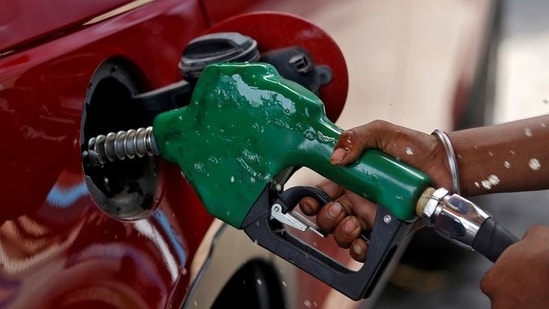
State-run oil marketers are under pressure to reduce pump prices of petrol and diesel as international oil prices plunged by over $10 a barrel on Friday, the biggest decline since April 2020, mainly on fears of new coronavirus variant Omicron, three people said.
Expect petrol and diesel price cuts soon, may be in one or two days, as international fuel rates have fallen sharply,” said one of them, who is a government official. Benchmark Brent crude on Friday plummeted 11.55% to $72.72 a barrel, while US crude West Texas Intermediate closed 13.1% lower at $68.15 per barrel on the last trading day of the week.
International oil prices are expected to fall further because of demand concerns due to Omicron, which has been named a “variant of concern” by the World Health Organisation and the European Centre for Disease Prevention and Control, the people said, requesting anonymity.
Besides Omnicron, a coordinated release of additional oil from strategic reserves of major consumers such as the US, China, India, Japan and South Korea have also affected the fuel market sentiment, the first person said. “OMCs (oil marketing companies) are watching the situation, and they may pass on the benefit to the consumer if prices are sustained at this level,” he said.
The companies are cautious as the Friday fall was “like a knee-jerk reaction from fears that the new Covid-19 variant” might “dampen economic growth and trigger another demand slump,” said a second person, who is an executive at a state-run fuel retailer.
He, however, downplayed the impact of nations raising supply by releasing oil from strategic reserves. “These announcements could not impact international prices much. However, renewed Covid-19 concerns have now brought about the desired objective,” he said.
Major oil consumers – the US, China, India, Japan and South Korea – for the first time reacted to the supply squeeze by producers’ cartel by announcing a coordinated release of additional oil from their respective reserves to cool down raging oil prices. India on November 23 joined the consumers’ group against artificial control of output by the cartel, the Organisation of the Petroleum Exporting Countries (OPEC) and its allies, together known as OPEC+.
Indian fuel retailers are wary that the cartel, which is meeting on December 2, may cut supplies to check the price fall. “Thus, international crude oil prices may recover again if OPEC+ announces slower than expected production rollout coming up,” the second person said.
In April 2020, when international oil prices plunged below $20 a barrel following global lockdowns due to the Covid-19 pandemic, the producers’ cartel decided to control output. On April 12, OPEC-plus announced an unprecedented 9.7 million barrel a day output cut to check falling crude oil rates.
Despite a rise in demand, the grouping did not restore supplies, which led to a spike in international oil prices. In early November this year, crude prices touched $85 a barrel, forcing the central government to slash excise duty on petrol by ₹5 a litre and diesel by ₹10 a litre to provide some relief to consumers.
Although oil marketers vouch for changing fuel rates daily to reflect the international market dynamics, there has not been any rate change by them in the past 24 days. In Delhi, petrol has been stable at ₹103.97 per litre, and diesel at ₹86.67 since November 4, which central excise duty was slashed.
The three state-run marketers enjoy a virtual monopoly in retail fuel trade in India, with over 90% market share. The petroleum ministry and the three state-run oil firms – Indian Oil Corporation, Bharat Petroleum Corporation Ltd and Hindustan Petroleum Corporation Ltd – did not respond to emailed queries on the matter.
“Price reduction may not be as sharp as the decline in rates of Brent and WTI because only about 30% of crude OMCs purchase from the spot market, balance 70% is based on long-term contracts,” the first person said.
Fluctuations in international benchmarks such as Brent also impact long-term crude oil contracts as such term-contracts are also linked to benchmark rates, a third person said.
India is the third-largest consumer of imported oil as it imports about 85% crude it processes. The country imported 227 million tonnes of crude oil worth $101.4 billion in 2019-20, which was a Covid-free year.
“Although there were some gains last Friday (November 19) also, when average price of Indian basket fell below ₹6,000 per barrel, but OMCs wanted to wait as international oil market was volatile and a minor rate cut followed by immediate price hike was not desirable,” said the person mentioned in the third instance. The Indian basket represents average import rate in rupee terms, a factor of international crude price and exchange rate.
As international crude oil prices are likely to fall further in the future, India’s oil marketing companies are also required to pass on the benefit of reduced oil prices “on a day-to-day basis” to give relief to consumers and to facilitate high economic growth, said SC Sharma, a former officer on special duty at the erstwhile Planning Commission.
Fuel likely to get cheaper in India as global oil prices dip - Hindustan Times
Read More



No comments:
Post a Comment